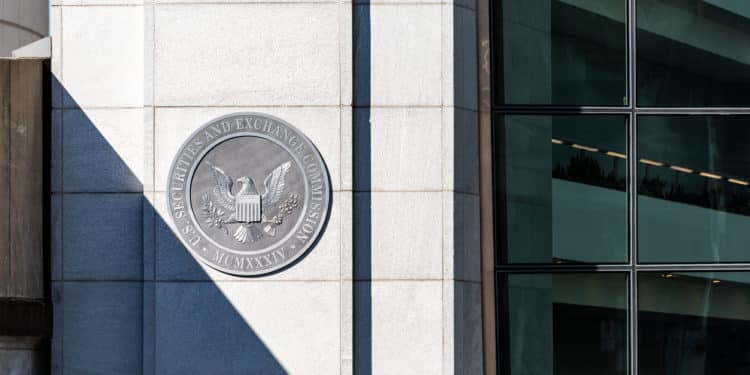On September 23, the U.S. Securities and Exchange Commission (SEC) voted 3-2 to approve rule changes to its highly successful whistleblower program. The rule changes are wide-ranging, and there are notable differences between the final rule changes and those originally proposed in 2018. The original proposed rule changes were highly controversial, and whistleblower advocates warned that they would undermine the success of the program.
In a recent National Law Review article, leading whistleblower attorney Stephen M. Kohn, a partner at qui tam firm Kohn, Kohn & Colapinto and the Chairman of the Board of Directors of the National Whistleblower Center, explained the six most important rule changes approved by the SEC. They are as follows:
- Proposed Rule 21F-9(e) (the “TCR issue”): The original proposed rules included a strict rule for filing whistleblower complaints. The rule stated that if a whistleblower contacted anyone at the SEC before filing a formal whistleblower tip (TCR), they would be automatically disqualified from a mandatory whistleblower reward. In the final newly approved rules, however, this strict rule was modified to be more forgiving to whistleblowers. Whistleblowers still must file a TCR but “are given 30-days from an initial contact with the SEC to file the TCR,” and this 30-day window “is tolled until a whistleblower obtains actual or constructive knowledge of the TCR filing requirement.” According to Kohn, “the final resolution of this issue was a win for whistleblowers.”
- Proposed Rule 21F-6(d) (Limiting Reward in Large Cases): The original proposed rules included a rule implementing a “soft cap” that would have automatically reduced the largest whistleblower rewards only due to their size. Whistleblower advocates strongly opposed this proposed rule. The approved rules contain no such “cap.” At the vote, there was debate among the Commissioners about whether the SEC already has the authority to reduce the dollar amount of large awards. According to Kohn, however, the position that the SEC does have this authority “does not have any legal support either in the statute, the legislative history, or in the actual controlling regulations.” He further adds that the “Commission’s complete abandonment of its proposal to limit rewards in large cases was a major victory for whistleblowers.”
- Proposed Rule 21F-6(c) (Increasing Rewards in Small Cases): A newly approved rule creates a presumption that the highest possible whistleblower reward (30% of the monetary sanctions) will be granted in cases where the sanctions collected by the SEC are $5 million or less, barring the existence of negative factors which would lower the award. As Kohn notes, “the Chairman of the Commission pointed out that the majority of whistleblower cases result in sanctions of $5 million or less, and thus numerous whistleblowers will benefit from this rule change.”
- Proposed Rule 21F-3(b)(4) (Related Action Cases): Kohn refers to this rule as “the most detrimental anti-whistleblower rule approved by the Commission.” The rule radically modifies the “related action” provisions established by the Dodd-Frank Act. The Dodd-Frank Act requires the SEC to award “related action” whistleblower rewards when an SEC whistleblower’s tip leads to a successful enforcement action by another agency. The new rule grants the SEC the authority to deem what actions are and are not “related actions” and thus avoid paying “related action” rewards. According to Kohn, “this new authority runs counter to the plain language of the Dodd-Frank Act and should be challenged in court if it is used to deny a whistleblower a mandatory related action award.”
- Proposed Rule 21F-2(d)(4) (Protection of Internal Whistleblowers): This newly approved rule abolishes a currently existing rule which prohibits regulated companies from retaliating against employees who report securities violations internally. The rule is based upon the Supreme Court ruling in Digital Realty v. Sommers, which “held that internal whistleblowing was not protected under the Dodd-Frank Act, and that to be protected whistleblowers must directly contact the SEC.” Whistleblower advocates argued, to no avail, that, regardless of the Digital ruling, the SEC had the authority to protect internal whistleblowers under the Sarbanes-Oxley Act (SOX). According to Kohn, “although a setback for whistleblowers, ultimately corporate compliance programs will be the primary victim of this rule change, as whistleblowers are clearly instructed to directly contact the SEC if they want protections or rewards under the Dodd-Frank Act.”
- Interpretive Guidance Defining “Analysts” Eligible for Rewards: The SEC approved “guidance,” which alters its current rule defining what level of “independent analysis” qualifies an individual for a whistleblower reward. Kohn references a letter sent by six U.S. Senators to the SEC which states that the “proposal would permit the SEC to create an insurmountable hurdle for a whistleblower to establish original information based on ‘independent analysis.’”
Kohn concludes his piece by summing up the rule changes:
Viewed as a whole, whistleblowers avoided a disastrous outcome. Had all five of these proposals been approved, the SEC’s whistleblower reward and program would have been devastated. The two most far-reaching anti-whistleblowers proposals were rejected (i.e. the limits being placed on large awards and the TCR complaint rule). Moreover, all of the Commissioners clearly recognized that whistleblowers are “extremely successful” in alerting the Commission to fraud and protecting investors from illegal Wall Street crimes.
Read:


